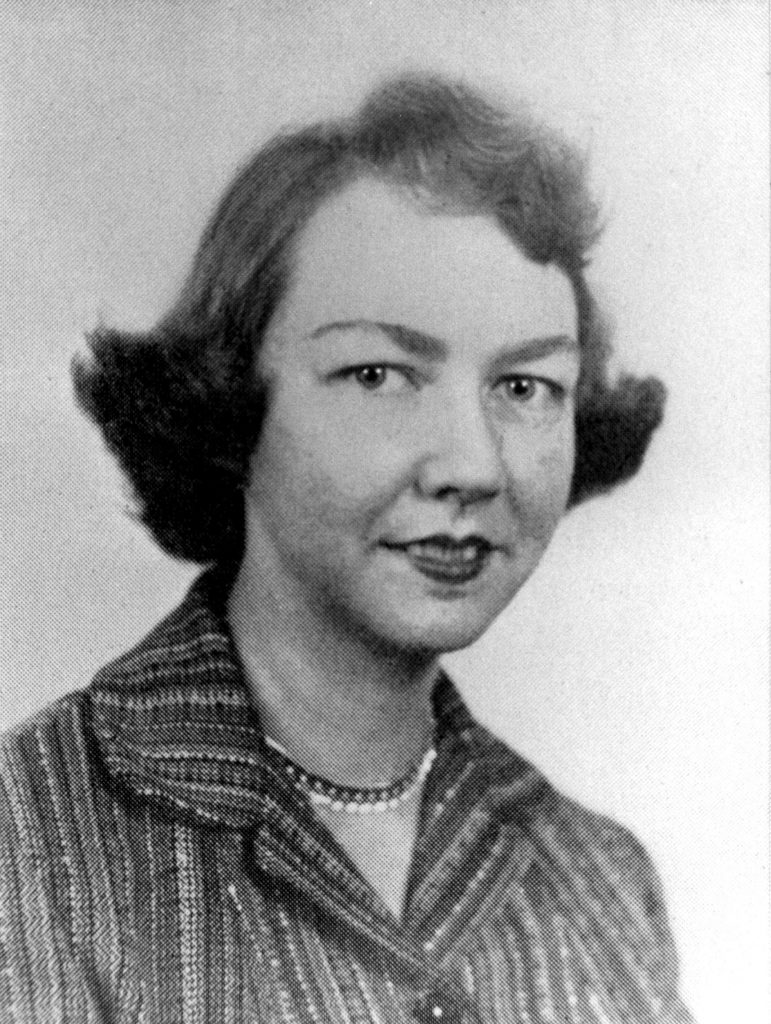Flannery O’Connor ordered her life to her vocation, and she found in suffering the key Christian mystery
The Easter season seems a fitting time to pay tribute to the American short story writer and novelist Flannery O’Connor.
O’Connor (1925-1964) was an only child who grew up in Savannah, Georgia, and whose father died of lupus. As a young woman she studied at the prestigious Iowa Workshop.
On the verge of a promising literary career, she contracted lupus herself and returned to the family dairy farm in Milledgeville, Georgia, to live out her remaining days with her mother, Regina.
A devout Catholic in the overwhelmingly evangelical Protestant South, O’Connor referred to herself as a “hillbilly Thomist” and often read a page or two from the “Summa Theologica” before going to bed. She never married.
Closely observing the family members, neighbors and farmhands with whom she came in contact every day, she wrote stories — about intellectual pride, the perils of secular humanism and the violence of grace — that even today have the power to shock.
In “Good Country People,” Hulga, a would-be nihilist home from college, is seduced by a traveling Bible salesman who steals her wooden leg.
In the novel “Wise Blood,” backwoods prophet Hazel Motes blinds himself with quicklime.
“Jesus thrown everything off balance,” notes The Misfit, the escaped convict in perhaps O’Connor’s best-known short story, “A Good Man is Hard to Find.” Then he shoots the whole family, including the grandmother.
In this culture where “everyone’s a writer” and reality show celebrities, porn stars and disgraced athletes dash off a “memoir” in a week or two, it’s worth reflecting on the qualities of a real writer.
In the preface to O’Connor’s collected letters, editor Sally Fitzgerald observed that it was from Catholic philosopher Jacques Maritain that O’Connor “first learned the conception of ‘the habit of art,’ habit in this instance being defined in the scholastic mode, not as mere mechanical routine, but as an attitude or quality of mind, as essential to the real artist as talent.”
O’Connor ordered her life to her vocation. By that I don’t just mean that she went to her typewriter each day, though she did — even in the midst of physical agony.
Fitzgerald continued: “[S]he acquired as well, I think, a second distinguished habit, which I have called ‘the habit of being’: an excellence not only of action but of interior disposition and activity that increasingly reflected the object, the being, which specified it, and was itself reflected in what she did and said.”
She took the full measure of herself. When an interviewer once asked why she wrote, she replied, “Because I am good at it.”
Elsewhere she quipped: “There’s no money in it and little consolation except that it looks good when you have to fill out a form … and a year later you will get a few letters from your friends saying they saw your book for 33 cents on a remainder table.”
She was also a daily Massgoer and by all accounts a lifelong celibate. “I went to St. Mary’s as it was right around the corner,” she once wrote of her neighborhood church, “and I could get there practically every morning. I went there three years and never knew a soul in that congregation or any of the priests, but it was not necessary. As soon as I went in the door I was at home.”
In addition to showing up at her desk each day, O’Connor tended her beloved peacocks, maintained a lively correspondence with several readers, and entertained guests as her health allowed.
“In a sense sickness is a place, more instructive than a long trip to Europe, and it’s always a place where there’s no company, where nobody can follow,” she wrote in 1956. “Sickness before death is a very appropriate thing and I think those who don’t have it miss one of God’s mercies.”
Her “Complete Stories,” published posthumously, won the 1972 U.S. National Book Award for Fiction. Today she is widely acknowledged as a master, if not the master, of the modern short story.
In the 2017 documentary “Uncommon Grace: The Life of Flannery O’Connor,” professor William A. Sessions, O’Connor’s biographer and friend, noted, “No matter what your background is, in religion of any kind, you’re thrown up against that moment of who you are, where you are, why you are. If you don’t want to answer that, you can do whatever you want to do. But there is a moment when that has to be dealt with. And I think O’Connor’s stories come down to that.”
Or as she herself put it: “They think faith is a big electric blanket, when of course it is the cross.”
Swollen with cortisone, her joints crippled, O’Connor worked fiercely through the lupus that would kill her at the age of 39.
She left us with these words that could have been written in her own blood: “The Catholic writer, in so far as he has the mind of the Church, will feel life from the standpoint of the central Christian mystery; that it has, for all its horror, been found by God to be worth dying for.”
Heather King is a blogger, speaker and the author of several books.
Interested in more? Subscribe to Angelus News to get daily articles sent to your inbox.

